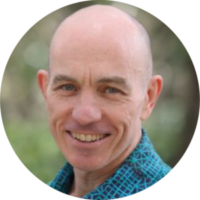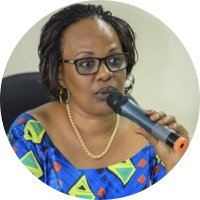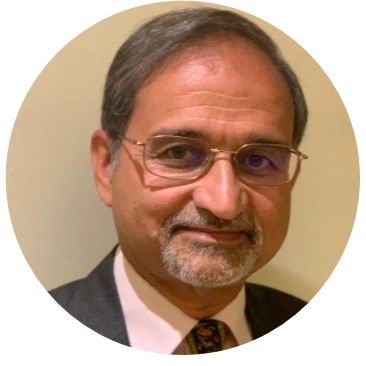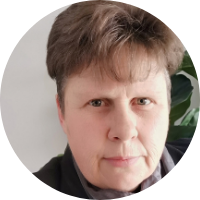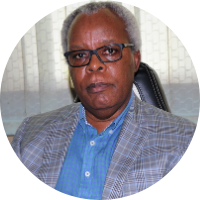The Inadequacy of Mental Health Data: COVID-19’s Lessons for Policy and Planning
A UGHE WEBINAR HOSTED BY THE INSTITUTE OF GLOBAL HEALTH EQUITY RESEARCH
In collaboration with CDT-Africa at Addis Ababa University and the Centre for Global Mental Health, King’s College London.
Organizers: Prof. Timothy Carey, & Dr. Charlotte Hanlon
Date: November 25th, 2020,
Time: 2pm CAT, 8am ET
Background
One lesson from the COVID-19 pandemic that may not yet be fully appreciated has been the immense value some jurisdictions have delivered from the systematic and sustained collection of data along with their willingness to base decisions on the data being collected. In the area of mental health, however, the potential value of collecting data in a routine and organized fashion and basing service-delivery decisions on those data has not been exploited. This lack of attention to the value of data is particularly the case in resource-poor settings. COVID-19 is presenting new and additional difficulties to people with existing mental health conditions and yet a lack of attention to the routine collection, use and accessibility of mental health data comprises the ability to respond effectively, and undermines efforts to advocate for increased resources for mental health.
Objectives
This webinar will unite a panel of experts from a variety of countries globally to explore ways to improve routine use of data around mental health for policy and planning (and in response to the COVID crisis). Drawing on their own expertise, they will discuss the need for locally available data to improve decision-making at district, regional, national, and cross-national levels to address the inequities in service provision for people with mental health problems in resource-poor settings.
Host:
Director, Institute of Global Health Equity Research; Andrew Weiss Chair of Research in Global Health
Professor Timothy Carey is a scientist-practitioner who is a researcher, teacher, trainer, and clinician. He has worked as a clinical psychologist in rural and underserved communities in both Scotland and remote Australia. Tim has a PhD in Clinical Psychology, an MSc in Statistics, and a PostGraduate Certificate in Biostatistics as well as tertiary qualifications in teaching. His most recent academic roles have been Professor and Director of Flinders University’s Centre for Remote Health and Charles Darwin University’s Professor of Clinical Psychology in Health Equity in Alice Springs, Australia. Tim has served on national grant funding bodies as well as university Human Research Ethics Committees (the Australian equivalent of Institutional Review Boards) and teaches research methods at a postgraduate level. He has also secured research income as a Chief Investigator on competitively funded research projects. Tim is experienced in quantitative and qualitative methods as well as systematic reviews and enjoys using different research methods to answer novel, important, and difficult questions in order improve health services and health service delivery. A central focus of his work is the importance of control to health and wellbeing and recognition of internal conflict as a transdiagnostic explanation of psychological distress. He is also very interested in different cultural explanations of psychological distress and the importance of control cross-culturally. He has pioneered clinical innovations such as patient-led appointment scheduling and patient-perspective care. He has developed an efficient and effective cognitive therapy called the Method of Levels (www.methodoflevels.com.au) as well as a smartphone app called MindSurf. While working in the National Health Service in Scotland Tim led a program of practice-based research that resulted in a reduction in the waiting time to access psychological services from 15 months to less than 2 weeks using the patient-led model of appointment scheduling he had developed. He is a Fulbright Scholar who has over 150 publications including books, book chapters, and peer-reviewed publications. He also has a blog on Psychology Today called In Control where he writes about general topics related to successful and contented day to day living. He is currently working on a book explaining the application of a theory of control to understanding health and social inequity.
Speakers:
Mental Health Division Manager, Rwanda Biomedical Center
Yvonne Kayitenshonga holds an MA and PhD in Clinical Psychology and Psychopathology from the University of Paris 8. She is a practitioner in the field of Clinical Psychology; and a public health professional with 26 years’ experience within which she gained relevant program management experience across monitoring & evaluating projects and management functions including Director of the National Mental Health Outpatient Center, National Director of all Mental Health Services, and National Director of Mental Health Division. In 2006 she was awarded a PhD scholarship grant from her government and joined the University of Paris 8 as a PhD student. She began researching on the evolution of trauma among the survivors of the Genocide perpetrated against the Tutsi. During her PhD research program, she simultaneously managed the Rwandan Mental Health Program. Since then she is researching in the trend of trauma, other mental disorders, drug addictions, and resilience in the Rwandan population, with particular focus on Genocide survivors. She is a member of Healthy Brain Global Initiative Interim Board of Directors. She leads training of trainers and cascade training programs of physicians, nurses, psychologists, counselors, community health care workers and volunteers on mental disorders management and advises on mental health strategy. Yvonne is passionate about primary health care. Her goal is to help clinicians deliver the best possible mental health care to individuals and communities. She is a part of global network services for psychological guidance expertise. Acknowledged for her ability to inspire all of her colleagues to work hard with her positive attitude has contributed to the great strides made since 1994 and the future of Rwanda’s mental health care. Vigilance and her commitment to excellence guides her daily in her leadership, she leads by example in all areas. The nurses, physicians, counselors, community health workers and mental health educators have responded proactively and positively to her leadership. As a mental health care team they have made enormous strides to better mental health in Rwanda.
Professor of the Practice of Global Mental Health, Department of Global Health and Population, Harvard T. H. Chan School of Public Health, Harvard University
Shekhar Saxena is Professor of the Practice of Global Mental Health at the Department of Global Health and Population at the Harvard T. H. Chan School of Public Health. A psychiatrist by training, he was in the faculty of AIIMS, New Delhi before he joined World Health Organization (WHO) in 1998. From 2010 to 2018 he was the Director of the Department of Mental Health and Substance Abuse at WHO. During his leadership WHO’s Mental Health Action Plan was adopted by the World Health Assembly and mental health and wellbeing was included in the United Nations Sustainable Development Goals. He also led the WHO team to strengthen mental health services in more than 100 countries. Author of more than 300 academic papers, he was an editor of the Lancet Commission on Global Mental Health and Sustainable Development 2018. His expertise includes providing evidence-based advice and technical assistance to policy makers, businesses and civil society on mental health promotion and prevention and management of mental, developmental, neurological and substance use disorders and suicide prevention.
Founder & CEO of the Global Mental Health Peer Network
Charlene is the Founder/CEO of the Global Mental Health Peer Network (www.gmhpn.org). She serves on a number of international boards and committees. Previously served on the South African Presidential Working Group on Disability and Ministerial Advisory Committee on Mental Health. Ms Sunkel is the former Principal Coordinator for the Movement for Global Mental Health. She has published widely on issues related to mental health and human rights, stigma and the needs of people with mental illness in low- and middle-income countries, and she served as a Commissioner on the Lancet Commission on Global Mental Health and Sustainable Development and on the WPA-Lancet Psychiatry Commission on the Future of Psychiatry. She currently is co-editor of the Lancet Commission on Mental Health Stigma and Discrimination, and a Commissioner on the Lancet Commission on Psychosis. She was diagnosed with schizophrenia in 1991 and her journey since then has exposed her to the challenges experienced by persons with mental disorders within and outside of the mental health sector. This encouraged her to commit herself to fighting the cause for mental health and human rights.
University of Ibadan, Nigeria, Director, WHO Collaborating Centre for Research and Training in Mental Health, Neurosciences, Drug and Alcohol Abuse, Professor Extraordinary, Department of Psychiatry, Stellenbosch University, South Africa.
Professor of Psychiatry and Director, WHO Collaborating Centre for Research in Mental Health, Neurosciences and Substance Abuse, Department of Psychiatry, University of Ibadan, Consultant Psychiatrist at the University College Hospital, Ibadan. He is a former President of the Association of Psychiatrists in Nigeria and of the African Association of Psychiatrists and Allied Professions. He Chairs the National Mental Health Action Committee, a policy think-tank of the Nigeria Federal Ministry of Health and is a member of the Ministerial Expert Advisory Committee on COVID-19. His main research areas are in epidemiology, global mental health and health system strengthening. Described as one of the “most influential scientific minds”, he is listed among the global highly cited researchers by Clarivate Analytics (https://hcr.clarivate.com). He is a recipient of many awards among which are Fellow of the Nigerian Academy of Science, Fellow of the Nigerian Academy of Medicine and the Nigerian National Order of Merit (Nigeria’s highest honor for academic achievement).

